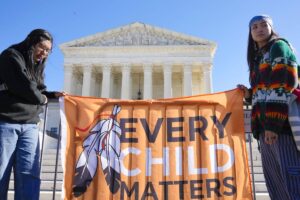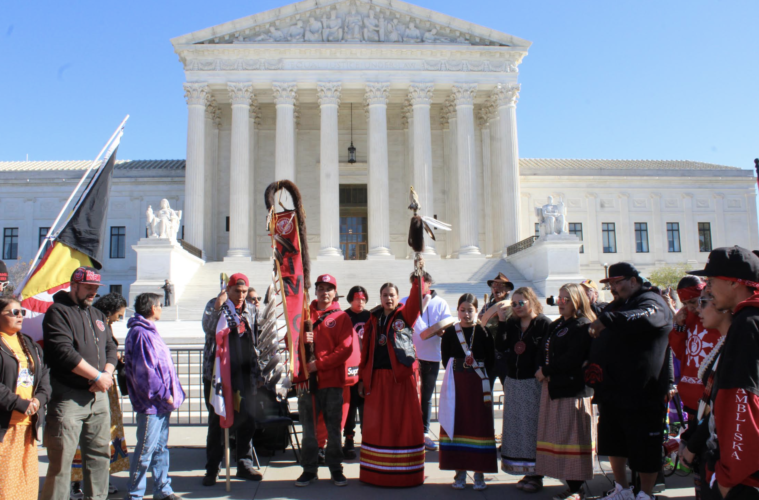The Supreme Court Upholds Native American Adoption Law
The U.S Supreme Court has decided to uphold the Indian Child Welfare Act (ICWA)

Credit: Associated Press File
ICWA History
The United States Supreme Court has voted to protect the Indian Child Welfare Act (ICWA). The ICWA “prioritizes placing Native American children with Native American families, gives tribal governments the power to decide whether non-Native families can adopt a Native child and protects children’s tribal identities.” The Indian Child Welfare Act was put into law to try to amend the United States history of “removing hundreds of thousands of Native children from their homes.”
According to Cherokee Phoenix it is estimated that before ICWA was instated in 1978 “between 25% and 35% of Native American and Alaskan Native children were taken from their families.” They were placed in boarding schools, foster care, and with white families to “separate them from their culture and heritage.” The Indian Child Welfare Act’s main focus is to place Native foster children with their tribes or relatives. Lately, a number of White adoptive families of Native children have protested the Indian Child Welfare Act, saying it is based on “unconstitutional racial preference”.
Supreme Court ICWA Decision
The Supreme Court has voted 7 to 2 towards upholding the law. The two Supreme Court Justices who voted against upholding the act are Justice Samuel Alito and Justice Clarence Thomas. Justice Amy Cohen Barrett spoke on the issue saying “The issues are complicated. But the bottom line is that we reject all of petitioners’ challenges to the statute, some on the merits and others on lack of standing.”
Published by HOLR Magazine


